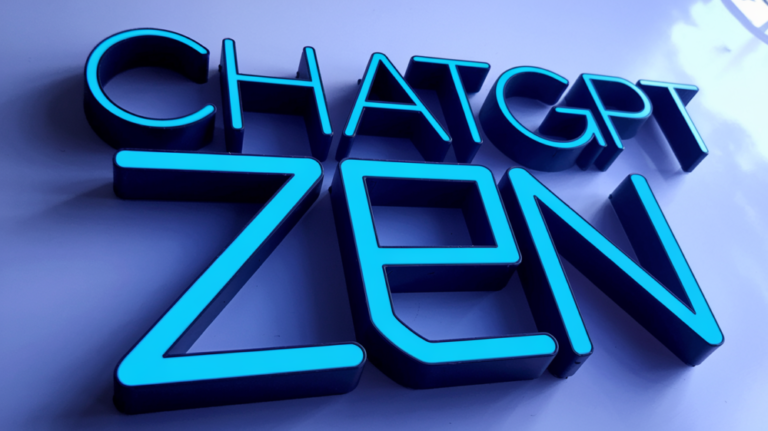
Price: $30.00
(as of Dec 21, 2024 08:21:07 UTC – Details)

UPDATED April 2023 with more details for how to install recent and future versions of Java.
Do-It-Yourself Java Games uses a unique “discovery learning” approach to teach computer programming: learn Java programming techniques more by doing Java programming than by reading about them. Through extensive use of fill-in blanks, with easy one-click access to answers, you will be guided to write complete programs yourself, starting with the first lesson. With this first book of the series, you’ll create puzzle and game programs like Choose An Adventure, Secret Code, Hangman, Crazy Eights, and many more, and discover how, when, and why Java programs are written the way they are.
Each book of the Do-It-Yourself Java Games series builds on skills taught in the previous book, yet each book is completely independent. You may start anywhere in the series based on your Java programming experience and current needs.Do-It-Yourself Java Games: An Introduction to Java Computer Programming – learn the fundamentals of Java programming as you create fourteen different text-based games. No previous programming experience is required.More Do-It-Yourself Java Games: An Introduction to Java Graphics and Event-Driven Programming – learn how to program windows, icons, and menus as you create ten more colorful, more interactive games.Advanced Do-It-Yourself Java Games: An Introduction to Java Threads and Animated Video Games – learn to control multiple, simultaneous activities as you create eight more lively, audible games.Do-It-Yourself Multiplayer Java Games: An Introduction to Java Sockets and Internet-Based Games – Learn to communicate across a network as you create seven games that you can play against friends on other computers.All books in the series employ the same “discovery learning” approach to teach computer programming.
From the Publisher
Learn to Write Java Programs by Creating Games
Do you like playing computer games? Do you enjoy solving puzzles? If so, you may enjoy computer programming.
Are you a hands-on kind of person? Would you rather start on a project right away instead of first reading long chapters about how things work? Do you lose interest if too much technical information is presented at a time? If so, this may be the right book for you.
In this book you’ll learn Java programming fundamentals while creating a wide variety of puzzles and games.
Discovery Learning


Try It
The lessons in the Do-It-Yourself Java Games series of books are presented using a “try-it” approach: do the steps given and see what happens. You’ll be given programming tasks, each followed by a program code listing. The listings have fill-in blanks to allow you to write most of the program code yourself.


Answer In the Back
Don’t worry if you are unsure of how to fill in the blanks. Every listing is shown completed at the back of the book.


Run It
These books use a “discovery learning” approach to teach computer programming: learn Java programming techniques more by doing Java programming than by reading about them. You are guided to write complete programs yourself, starting with the first lesson. You’ll discover how, when, and why Java programs are written the way they are.
The Games


Hello World, ASCII Art, Name Game, Silly Story, Choose Your Own Adventure
In these games you’ll learn how to create and run Java programs; to ask for input; to print and manipulate text; to use variables, if statements, while loops, and switch blocks; and to export your program.
Hello World will print hello and a variety of other text messages.
ASCII Art prints images formed from text.
Silly Story asks for a name, an animal, and other details then inserts them into a story.
The Name Game will print a unique message based on the name entered.
Choose Your Own Adventure tells a story, stopping every so often to ask the player to choose what should happen next.


Tmperature Converter, Ten Little Chocolates, Calculator, Guess My Number
These programs will teach you how to work with different numerical data types, perform arithmetic, convert text to a numerical form and back again, use for loops, control the order of operation, handle errors caused by invalid code usage, and to extend existing classes.
Calculator adds, subtracts, multiplies, and divides any two entered numbers.
Guess My Number chooses a random number for the player to guess and tells the player if he guessed too high or too low.
Temperature Converter will convert temperatures between Fahrenheit and Celsius
Ten Little Chocolates helps you learn to use for loops to more easily print the words to a simple counting song.


Word Scramble, Secret Code
These programs introduce using comments, arrays, boolean data, static methods, print to the console, write to and read from a file, more string data manipulation, more switch block features, system exit, and how to keep required data files with jar files.
Word Scramble will take any list of words and scramble the characters of each word to generate a word scramble puzzle.
Secret Code will generate a secret code key to be saved in a separate file. The player may then use that file to encode a message. If he gives that key file and his encoded message to another player, the other player may decode the message using that code key.


Word Mastermind
This program teaches you how to use instance variables and static final variables, how to do more string manipulation, and how to start with an empty array.
The goal in the Word Mastermind game is to guess a randomly chosen, four-letter word. A clue will contain an “O” for each correct letter you guessed in the correct position and an “X” for each correct letter you guessed in the wrong position.
A file of 342 common four-letter words is provided for this game.


Hangman
This program introduces the character data type, array lists, null values, and switch statements with integer cases. It will guide you through more string manipulation and show you how to validate user input and how to read all the lines of a data file of unknown length.
Hangman gives the player a puzzle that shows how many words are in the phrase and how many letters are in each word. If he guesses a correct letter, the letter will be properly placed in the puzzle. If he guesses an incorrect letter, another part of a stick man will be added to the hangman gallows. To win the game, the player must guess the phrase before all ten parts of the stick man are drawn.
A file of 508 phrases is provided for this game.


Crazy Eights
This project focuses on the “object oriented” aspect of Java. You will create Java classes with variables and methods for typical objects used in card games: cards, a deck of cards, and a hand of cards. In this project you’ll also learn more about class constructors and the modulo operator. You’ll write code to take turns, to play appropriate cards when it is the computer’s turn, and to process what the player wants to do when it is his turn.
In Crazy Eights, a player must play a card that matches the discard’s suit or rank or play an eight. If someone plays an eight, he may name the suit to be played next. If a player cannot play a card, he must pick up another card. The first player to play all of his cards wins.
Add to Cart
Add to Cart
Add to Cart
Add to Cart
Customer Reviews
4.2 out of 5 stars
49
4.2 out of 5 stars
28
3.8 out of 5 stars
18
4.2 out of 5 stars
14
Price
$30.00$30.00 $40.00$40.00 $42.00$42.00 $42.00$42.00
Base Java
✓
✓
✓
✓
Java Swing (GUI)
✓
✓
✓
Java Threads
✓
✓
Java Sockets
✓
Number of games
14 10 8 7
Type of games
Text games: stories, word games, and a card game Strategy games: tile, maze and word puzzles; dice and card games Animated video games: word, tile, card, and arcade-style action games Multiplayer games: chat, turn-based strategy, arcade-style action, timed word competition, and fast-paced card games
Publisher : CreateSpace Independent Publishing Platform; 2nd edition (October 30, 2015)
Language : English
Paperback : 392 pages
ISBN-10 : 1518789137
ISBN-13 : 978-1518789137
Item Weight : 1.49 pounds
Dimensions : 7.5 x 0.89 x 9.25 inches
Customers say
Customers find the learning material in the program helpful for learning or refreshing their programming skills. They appreciate the hands-on approach and relatable context, providing a good introduction to the Java programming language. The game design keeps them engaged and keeps them involved in the learning process.
AI-generated from the text of customer reviews










